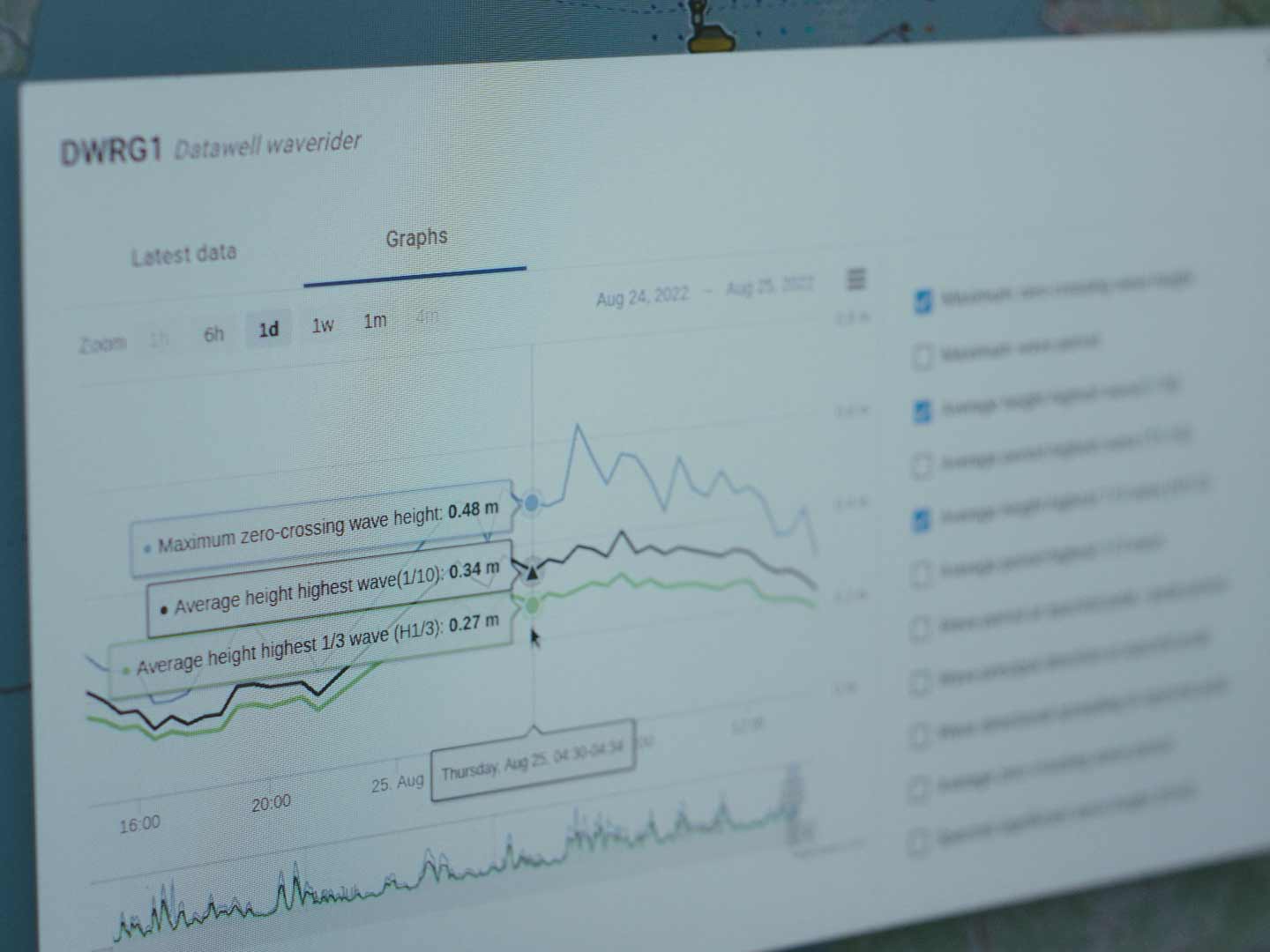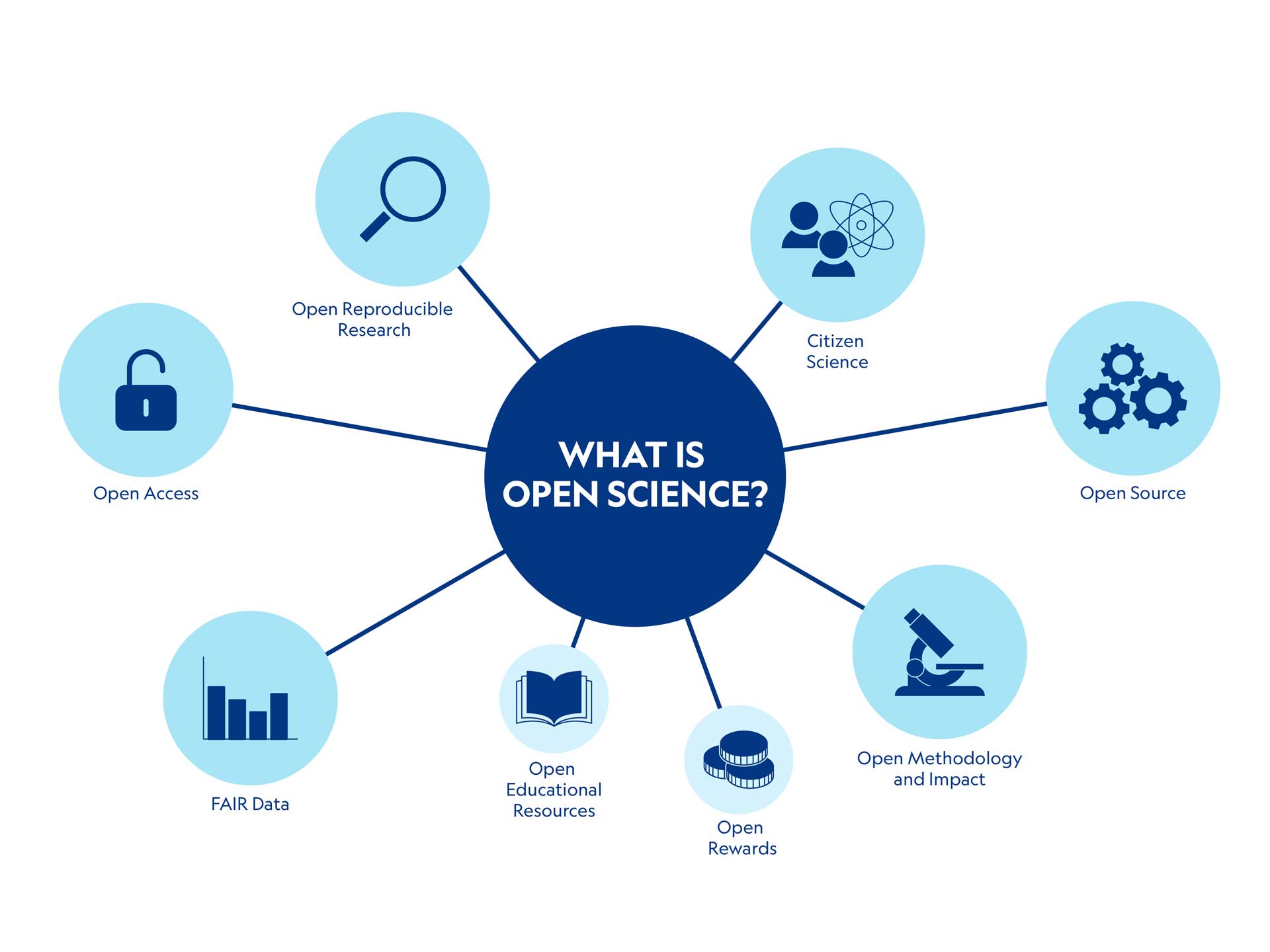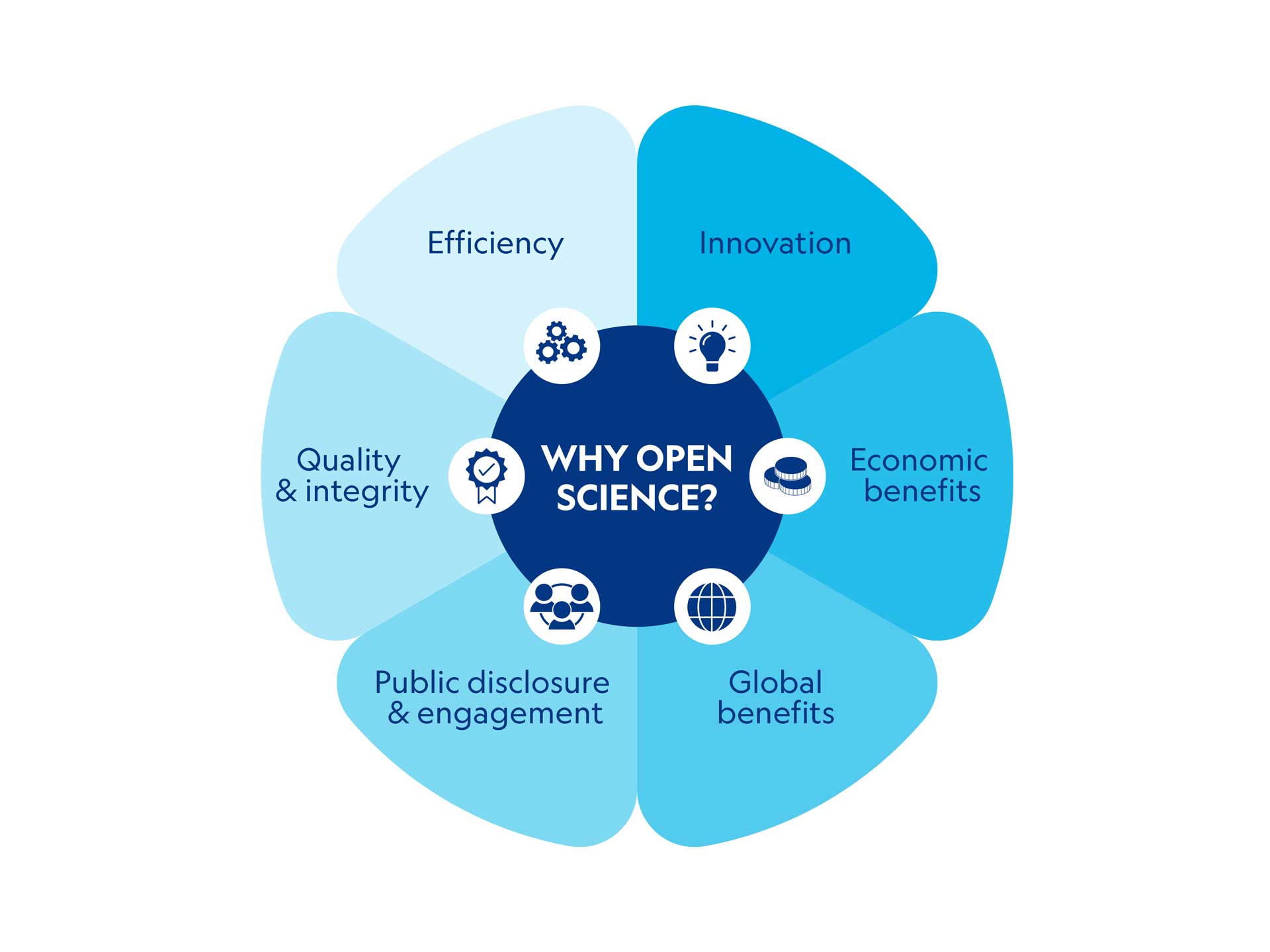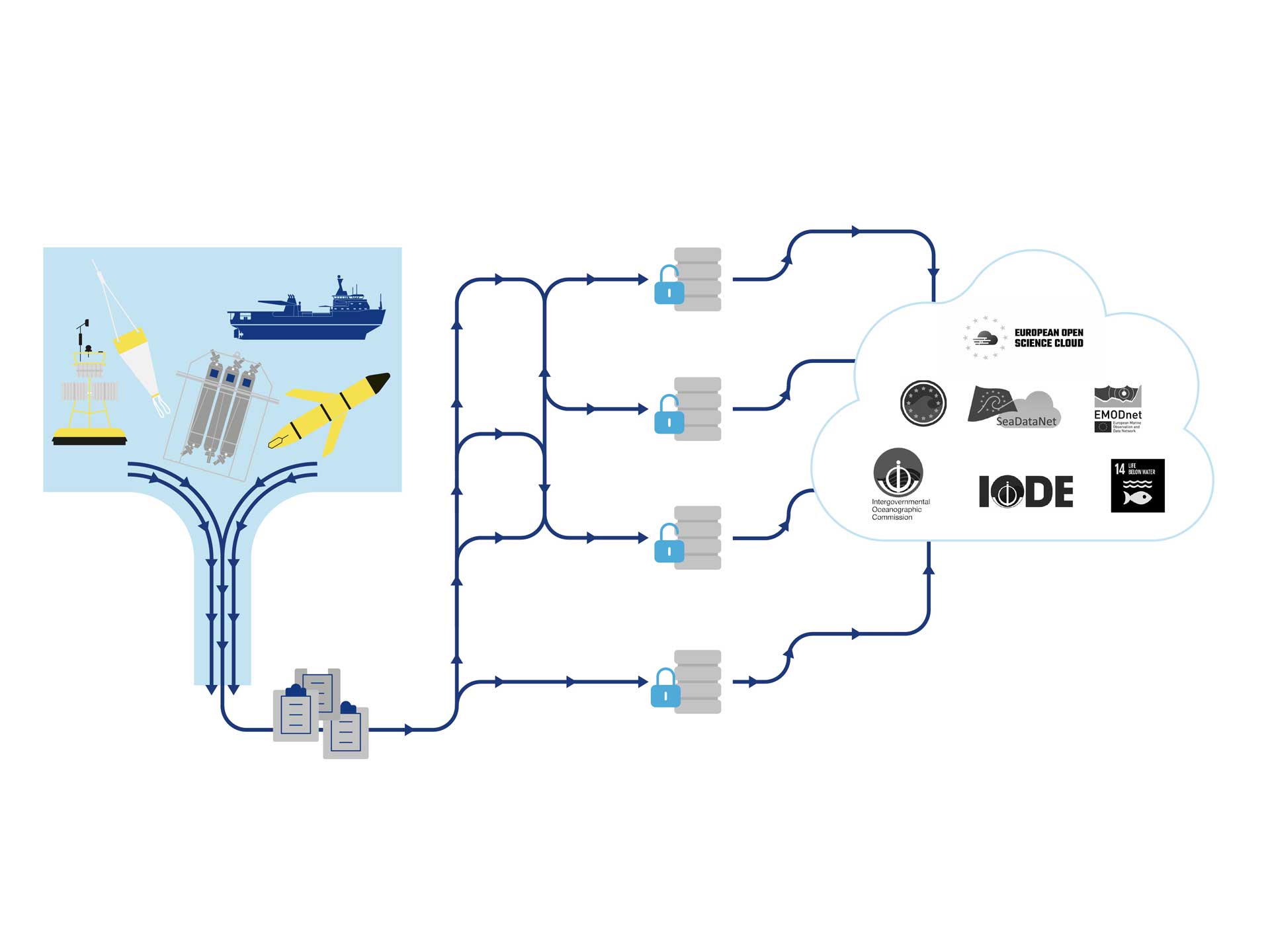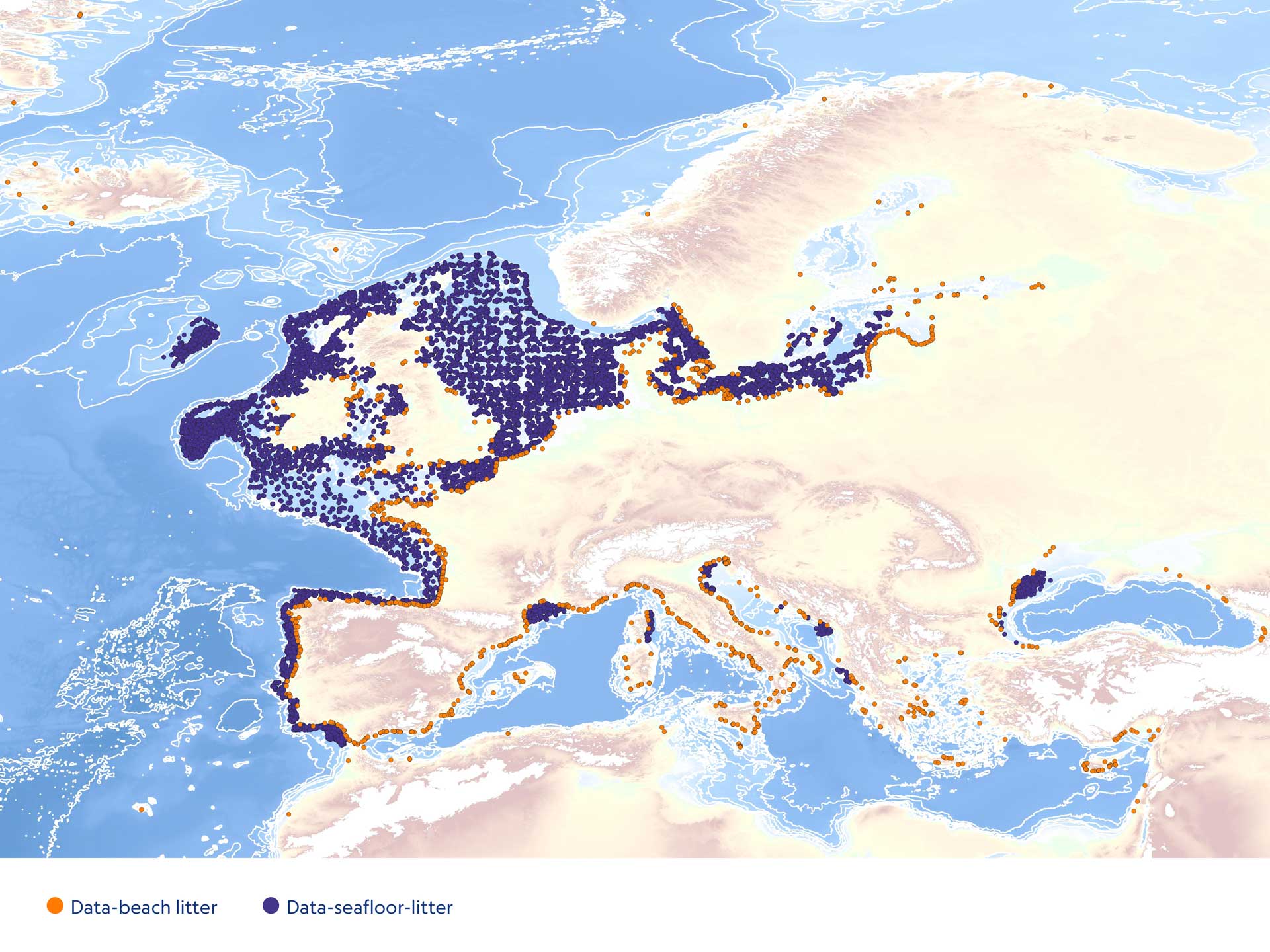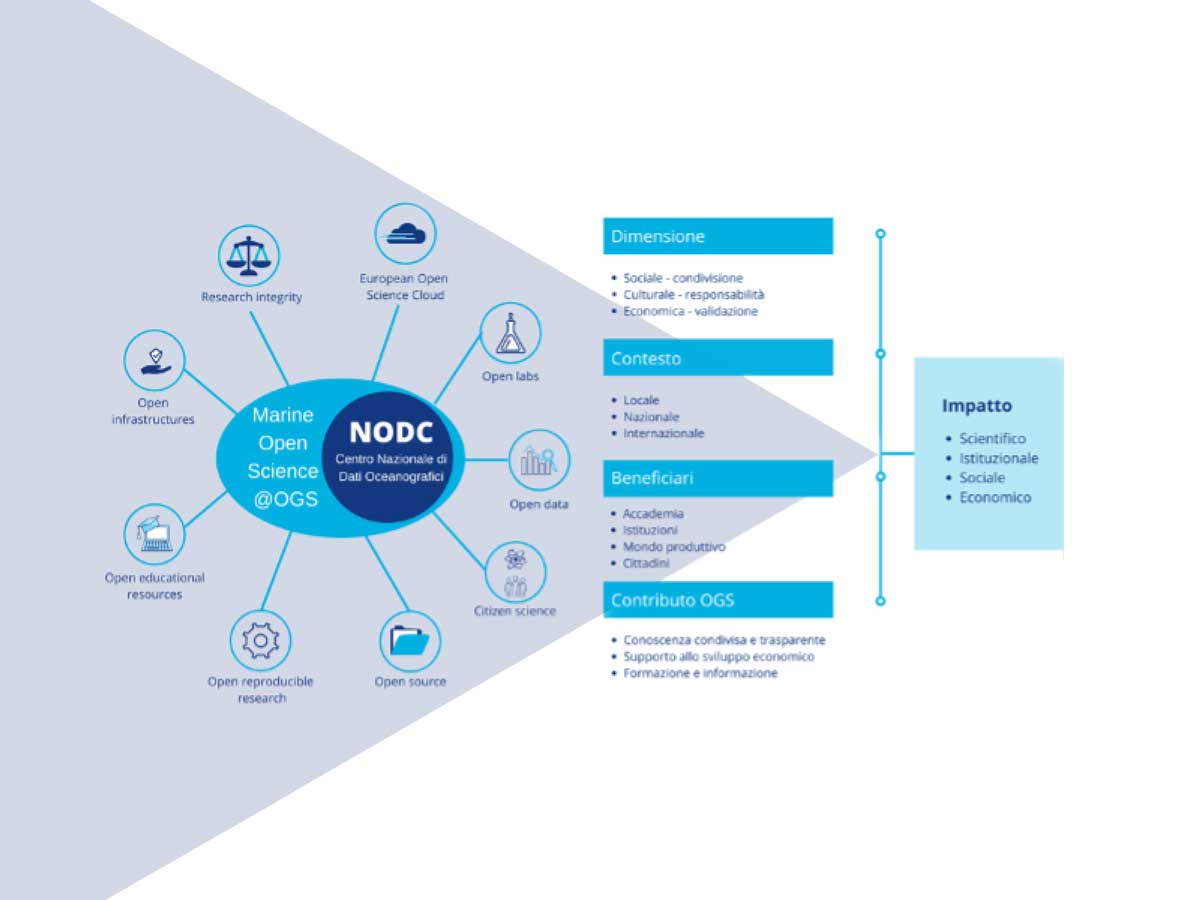The National Oceanographic Data Centre is the Italian reference in the International Oceanographic Data Exchange System of the UNESCO Intergovernmental Oceanographic Commission. Among the eleven marine data centers in the world, the first and only one in Italy to receive UNESCO quality certification. The Centre manages the largest multidisciplinary archive in Italy of information on the coastal and offshore marine environment.
The Data Centre is responsible for the management and free redistribution of marine data from the national and international scientific community, as well as from various other sources, from the civil and business sectors. The database contains more than 300 thousand profiles of the water column, from the surface to the bottom, with surveys of physical and biogeochemical variables. Over 460 million measurements collected from the late 1800s to the present day, of which 75.8% are freely accessible to all users and 24.2% are under negotiation.
The activity mainly concerns:
- the collection, preservation, cataloguing of oceanographic data, standardisation of formats and quality control;
- the development of information systems for access to data and metadata;
- the maintenance and implementation of the content distribution and display portal;
- the creation of innovative graphic products, based on the analysis of marine data, whose purpose is to provide basic information on the state of the marine environment, in accordance with European directives, in particular the Marine Strategy Framework Directive (EU MSFD, 2008/56/EC).
The Data Centre contributes to the following aims of Open Science in international marine strategies:
- Open data and knowledge: the Centre makes data findable, accessible, interoperable and reusable, in line with FAIR principles, through international collaborations and projects, expanding the multidisciplinary nature of its action, both in terms of parameters considered and skills employed, and increasing the amount of experimental information archived.
- Open source: the Centre develops and promotes open software and e-infrastructures to enable the scientific community to share and process data and research results across scientific boundaries and domains.
- Open and Reproducible Research: the Centre develops and makes freely accessible guidelines for the open management of public data on marine water quality.
- Research integrity: The Centre defines and uses open data policies for data collected under institutional programmes, supported by the possibility of releasing DOIs, while respecting intellectual property.
- Citizen Science: The Data Centre makes available at European level data collected by citizens through open applications developed in favour of citizen science, i.e. all initiatives aimed at promoting the recognition of citizens as valid producers of scientific knowledge.
The Data Centre participates in the Italian Computing and Data Infrastructure (ICDI) working group, created by representatives of some of the main Italian Research and Digital Infrastructures, with the aim of promoting synergies at national level in order to optimise Italian participation in the current European challenges in this field, including: , European Data Infrastructure (EDI), High Performance Computing (HPC) and European Open Science Cloud (EOSC). In this regard, OGS, represented by the Data Center, is one of the founding members of the EOSC Association, committed to promoting Open Science.
The Data Centre's information system is integrated into the pan-European SeaDataNet infrastructure for integrated marine data management, which connects more than 100 national oceanographic data centres.
NODC manages the collection of European marine litter data based on the monitoring provided for in the Marine Strategy Framework Directive through the development and maintenance of three databases that are unique in Europe.
On a global scale the Centre participates in activities for transparent and accessible seas and oceans linked to the UN Ocean Decade and in the implementation of global data platforms in support of the sea-related objectives of the UN Agenda 2030 for Sustainable Development.
